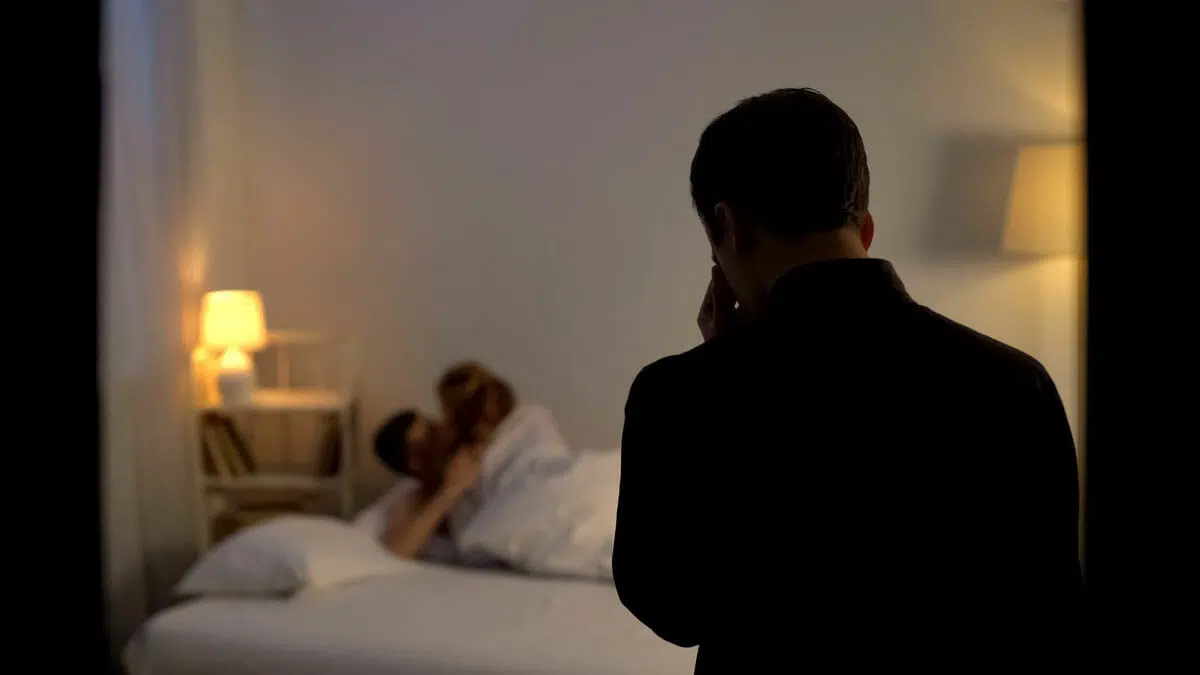The phrase, “Put me in, Coach,” takes on a whole new meaning when you visit a website like Poly-Coach. Do you need help learning your way around polyamory, swinging, or open marriage? Then Poly-Coach is for you! Many Virginians enjoy the staid predictability of the “one spouse/one sexual partner” rule. Many, however, pursue other passions: open relationships, polyamory, or swinging. What happens when two swingers who are married to each other stretch the boundaries and accuse each other of adultery?
Whoa, Tiger!
We mention Poly-Coach not because it is bookmarked on our browser or anything but because the site clarifies the difference between having an open marriage, practicing polyamory, and swinging:
- Open Marriage — Married but able to be with other people, sexually, emotionally, platonically or romantically
- Polyamory — Loving more than one person at a time, with an emphasis on the emotional connections, not just physical lust
- Swinging — Social sex; you and she meet other swingers and together you have encounters
Where the line is drawn depends entirely on the two people involved. Some experts recommend signing a formal document outlining the Dos and Don’ts of the relationship in order to draw that line.
If you and she have decided you are swingers, all well and good so long as you are respectful, healthy, and practice safe sex, obviously. Swinging, for most Virginia couples, means shared sexual experiences, not the two of you going two separate ways at separate times.
At some point, you two swingers may run up against someone else’s definition of right and wrong; namely, the Commonwealth of Virginia’s legal code.
The Three Cs of Adultery Laws
Connive, condone, or commit: the three Cs of Virginia’s adultery laws. If you and your wife define yourselves as swingers, that means you have hit all three, the trifecta of reasons you cannot accuse the other of adultery. Let’s take a closer look at each.
Connivance means providing a means by which the other committed partner is led into the behavior you now profess not to like, as laid spelled out in Code of Virginia § 20-94:
When the suit is for divorce for adultery, sodomy, or buggery, the divorce shall not be granted, if it appear that the parties voluntarily cohabited after the knowledge of the fact of adultery, sodomy or buggery, or that it occurred more than five years before the institution of the suit, or that it was committed by the procurement or connivance of the party alleging such act. (our emphasis)
You both agreed to experiment, seek out other swingers, and pursue sexual encounters with other people. If you have no formal document stating that all encounters will be as a couple, and you have a history of these encounters, you have connived to provide your spouse with opportunity. You have no grounds to accuse her of adultery.
Condonation is seen in another part of the same law, where it states that you voluntarily cohabitated after knowing of the sex outside of marriage. If you know your spouse did these things, and you continued to live together as husband and wife, you condoned her behavior. You have no grounds to accuse her of adultery.
The third C is committed: if you committed the same acts as she, and now you have a change of heart and want her to stop, you cannot use her behavior as the cause for your divorce. You did the same things. If you want Virginia’s fancy-pants wording, it is res adjudicata; if you want the version with no pants plain English, it is recrimination, found in § 20-91:
A plea of res adjudicata or of recrimination with respect to any other provision of this section shall not be a bar to either party obtaining a divorce on this ground
The “shall not be a bar” part is referring to divorcing by simply living apart. You cannot use adultery as a fault ground if you were pursuing the same behavior. When you both did the deeds, you have no grounds to accuse her of adultery.
Frustrating as the situation may be, your attorney will tell you that proving adultery in a swinging marriage is difficult. Look for another way. The easiest? Live apart for six months (no kids) or a year (with kids). You can pursue your sexual freedom and not have to accuse her of the very behavior you both enjoyed.
Call The Only Family Law Firm in Virginia Representing Men Exclusively
At The Firm For Men we are strictly professional in our conduct with our clients. We maintain confidences, of course, and we also do not pass judgment on your choices of how you wish to live your life. When you face complex legal issues like parting ways as a polyamorous couple, separating in an open marriage, or divorcing as a swinger, we stand ready to help. Contact our offices by telephone at 757-383-9184, or contact us online, or swing come by our office in Virginia Beach.

